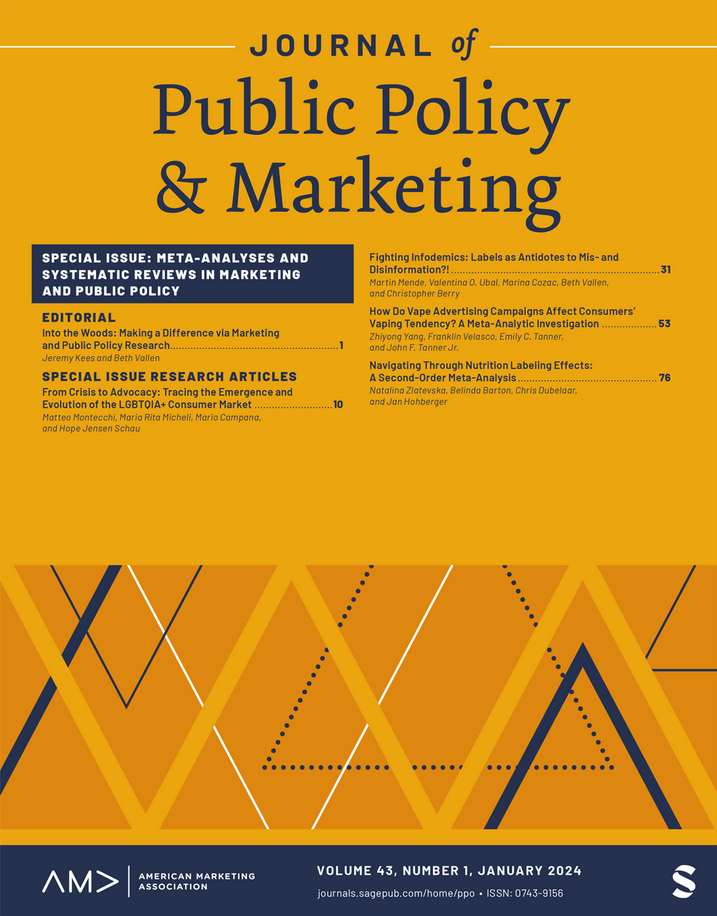Political Polarization: Challenges, Opportunities, and Hope for Consumer Welfare, Marketers, and Public Policy
IF 4.7
3区 管理学
Q1 BUSINESS
引用次数: 29
Abstract
Political polarization is a marked political division in the population, characterized by multiple manifestations. The authors argue that it can affect consumer psychology, which in turn influences marketers, policy makers, and consumer welfare. The present work introduces the construct of political polarization to the marketing literature and shows how it serves as a novel challenge for various marketing stakeholders. For consumers, the authors propose that political polarization increases the salience of political identities, alters inter- and intragroup dynamics, and amplifies cognitive biases. These effects negatively affect consumer welfare, including financial welfare, relationships, mental and physical health, and societal interests. For marketers, polarization introduces a challenge to both be more sociopolitically engaged while also navigating competing political interests. Polarization also creates new opportunities and challenges for segmentation, targeting, loyalty, and product offerings. For policy makers, political polarization creates policy gaps, impedes the implementation of policy, and obstructs governance. Building from these insights, the authors consider the drawbacks and overlooked benefits of political polarization, potential remedies, and directions for future research.政治两极分化:消费者福利、市场营销和公共政策的挑战、机遇和希望
政治两极分化是人口中明显的政治分化,具有多种表现形式。作者认为,它可以影响消费者心理,进而影响营销人员、政策制定者和消费者福利。目前的工作介绍了政治极化的结构到营销文献,并表明它如何作为一个新的挑战,为各种营销利益相关者。对于消费者来说,作者提出政治极化增加了政治身份的显著性,改变了群体间和群体内部的动态,并放大了认知偏见。这些影响对消费者福利产生负面影响,包括经济福利、人际关系、身心健康和社会利益。对于营销人员来说,两极分化带来了挑战,既要更多地参与社会政治,又要驾驭相互竞争的政治利益。两极分化也为细分、目标定位、忠诚度和产品提供创造了新的机遇和挑战。对于政策制定者来说,政治两极分化造成了政策缺口,阻碍了政策的实施,阻碍了治理。基于这些见解,作者考虑了政治两极分化的缺点和被忽视的好处,潜在的补救措施以及未来研究的方向。
本文章由计算机程序翻译,如有差异,请以英文原文为准。
求助全文
约1分钟内获得全文
求助全文
来源期刊

Journal of Public Policy & Marketing
BUSINESS-
CiteScore
10.20
自引率
15.40%
发文量
29
期刊介绍:
Journal of Public Policy & Marketing welcomes manuscripts from diverse disciplines to offer a range of perspectives. We encourage submissions from individuals with varied backgrounds, such as marketing, communications, economics, consumer affairs, law, public policy, sociology, psychology, anthropology, or philosophy. The journal prioritizes well-documented, well-reasoned, balanced, and relevant manuscripts, regardless of the author's field of expertise.
 求助内容:
求助内容: 应助结果提醒方式:
应助结果提醒方式:


